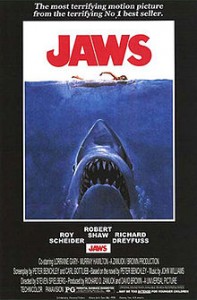[contextly_auto_sidebar id=”HnOcX1gioiqpT82lL4d0savWjVspAEhp”]
IT’S been pretty well documented now that by “connecting” us all, the web has reinforced the growth of a corporate blockbuster culture. Despite the talk about “the long tail,” and the web’s ability to sustain fringe culture, the most heavily promoted  movies, pop stars and so on are increasingly trouncing their less-funded rivals. (They don’t call it “world wide” for nothing.)
movies, pop stars and so on are increasingly trouncing their less-funded rivals. (They don’t call it “world wide” for nothing.)
It’s a bit like the way the very rich exert influence on politicians, who then make things easier for… the very rich. Can anything break this cycle?
To Andrew Leonard, a Salon colleague with whom I sometimes disagree but always read with admiration, the answer is: The Internet. Leonard starts his piece by by praising the new book by Astra Taylor, The People’s Platform, which looks skeptically at what digital technology has done to culture. Taylor, a native Canadian who has worked in the indie film world, calls for more European-style state funding. Here’s where Leonard parts company with her.
The state, as currently constituted, is broken. Co-opted by special interests and crippled by partisan antipathy, it has proven itself unable to regulate the financial industry, tackle climate change or address accelerating inequality. The prospect, as Taylor suggests, of instituting new taxes on the advertising or technology industries that would be diverted to supporting unpopular cultural production seems hopelessly quixotic. And that doesn’t even get into the problem of how to insulate support for meaningful cultural production from our current toxic partisanship. The contemporary Republican Party rejects science. I do not want a President Rand Paul in charge of state-subsidized culture.
Leonard argues that neither the state nor billionaire saviors are the right answer.Rather, the very technology that has created the crisis could offer a solution: “Because if there is one aspect to our digital-network hype that has been borne out over the years, it is that the Internet is a fantastically powerful mechanism for getting things done more cheaply and efficiently. We’ve got to figure out how to leverage that power to support the cultural production that we need, rather than merely assault us with the cultural production that Facebook and Google have decided we want.”
This strikes me as unlikely. The workings of the Internet — which in economic terms merges markets — leads to a winner-take-all system decried by Cornell economist Robert H. Frank. It also allows cultural conquest to be essentially bought (much as elections used to be) as Harvard’s Anita Elberse demonstrates in her recent book Blockbusters. (The subhed of this story about Elberse is, “In entertainment, big bets on likely winners rule.”) The recent swing against net neutrality — the growth, that is, of corporate dominance — will likely only reinforce this.
But Leonard is a smart guy, and every bit as skeptical of cyber-utopianism as I am: I urge my readers to check out his argument and offer comments here.
ALSO: Another scribe I will read on almost any topics is the New Republic’s Adam Kirsch. He’s recently published a new, long essay about the digital humanities, which seems to be one of the few growth areas in the arts and culture side of the academy. His piece considers several new books, including one by Franco Moretti, a Stanford scholar who a friend is fascinated with. This comes near the end of Kirsch’s story:
The best thing that the humanities could do at this moment, then, is not to embrace the momentum of the digital, the tech tsunami, but to resist it and to critique it. This is not Luddism; it is intellectual responsibility. Is it actually true that reading online is an adequate substitute for reading on paper? If not, perhaps we should not be concentrating on digitizing our books but on preserving and circulating them more effectively. Are images able to do the work of a complex discourse? If not, and reasoning is irreducibly linguistic, then it would be a grave mistake to move writing away from the center of a humanities education.
FINALLY: Who says poetry makes nothing happen? (Okay it was Auden, not Yeats.) But the striking thing is that this poem by Simon Armitage (one of our favorites) will literally help clear the air at the University of Sheffield. “The installation, a collaboration between Mr. Armitage and the chemist Tony Ryan, both professors at the university, is an unusual marriage of medium and message,” the New York Times reports. “Its 16 lines are inscribed on a 33-by-66-foot plaque coated with microscopic particles of titanium dioxide, which use sunlight and oxygen to react with nitrogen oxide pollutants and purify the air.”

The internet provides an avenue of choice for open-minded consumers to find what interests them – rather than what is rammed down their throats by corporations with dubious control over mass-media outlets.
Well, that’s what the Internet was supposed to offer. These days, it is more corporate controlled than just about any sphere. Read Astra Taylor’s The People’s Platform of my upcoming Culture Crash for a fuller retort